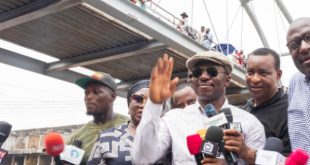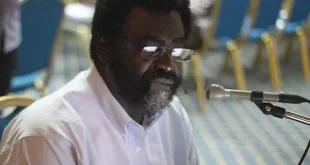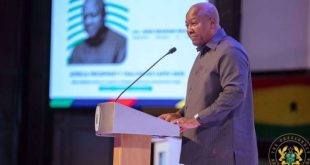Dr. Kwabena Duffuor, a former governor of the Bank of Ghana, has urged Ghanaians to try choosing a businessman as president for a change because the country’s economic issues are a “leadership problem.”
In an interview that was shown on Joy News’ Upfront on Wednesday, he discussed ways to rescue Ghana from its current economic crisis and prevent a default on its debt.
What kind of President does Ghana currently need? We have had attorneys as Presidents, Dr. Duffuor retorted.
Why don’t we try a businessman? Kuffuor was a lawyer, Professor Mills was a lawyer, Akufo Addo is a lawyer, Mahama is a communications expert.
He refuted the claim made by government officials that the Covid-19 outbreak and the Russia-Ukraine war are to blame for Ghana’s current economic problems and worrying currency depreciation. He attributed it to poor leadership practices.
“Fifteen African countries have registered single-digit inflation during this same period including Togo, Ivory Coast, Morocco, Kenya, Uganda, and so on. These countries didn’t jump over Covid-19 or Russia – Ukraine war. We are doing something wrong in Ghana’’.
He urged the Ghanaian government to invest more in capital expenditures in order to create jobs and boost tax revenues rather than continuing to spend the majority of its income, borrowings, and grants on consumption.
“Ghana has over-borrowed and we have revenue shortfalls. But we are spending over 70% of our revenue, grants, and borrowed funds on consumption but we must invest in infrastructural development for government revenue to grow through the increased job creation. Currently, very little goes into capital expenditure’’.
We borrow to make up the difference in our income, we pay interest on loans with borrowed money, and now the worldwide market has stopped lending to us because we are unable to handle our debt.
Dr. Kwabena Duffuor further blamed the pressure on the Ghana cedi to structural flaws in our mineral and oil export arrangements to balance our import payments as well as a scarcity of US dollars in the system as a result of excessive government borrowing.
‘’Less than 20% of our total export earnings impact the Bank of Ghana’s cash flow, according to data from the Ministry of Finance itself. That is a big problem’’. He continued, ‘’take for example oil exports for 2021. Ghana exported 3.9b USD worth of oil but Ghana actually earned only 513m USD out of the total export while 3.4b USD went to the owners of the oil companies’’.
Additionally, “Ghana spent USD 2.7 billion at the same time to buy petroleum items for our own domestic consumption, and here is where we have the structural challenges with our balance of payment,” he continued.
He stated that a fresh approach to business is needed to buck the downward trend and proposed a participatory business model to take the place of the current concessionary business model, which favours foreign firms in the oil and minerals sector at the expense of the Ghanaian economy.
The former BoG governor gave the central bank some suggestions on how to use gold exports to relieve the pressure on the currency, lower inflation, and stabilize the economy.
“If BoG organizes all the gold exporters, buys off all their gold, even at premium prices, and also gathers the projected data from the gold exporters, there are two things the government can do with it to stabilize our currency’’, the former governor explained. ‘’Government can sell the gold forward with instruments to bring more dollars into the system. Secondly, government can use the projected data from the gold exporters for swap arrangements for more dollars to pay off some of our debts and to import goods and services. If done well, it will take pressure off the Ghana cedi. This can be done and this is my suggestion.’”
To relieve the strain on our local currency, he claimed that we are not selling the gold under the swap agreement; rather, we are simply exchanging it for foreign money in the interim. The BOG can always buy the gold back once they have enough dollars in the system.
He also maintains that no administration in the Fourth Republic has been able to surpass President John Evans Atta Mills’ record of economic management while he served as finance minister.
Source: Ghanatodayonline.com
 Ghanatodayonline.com News, Politics, Health, Education & More
Ghanatodayonline.com News, Politics, Health, Education & More




